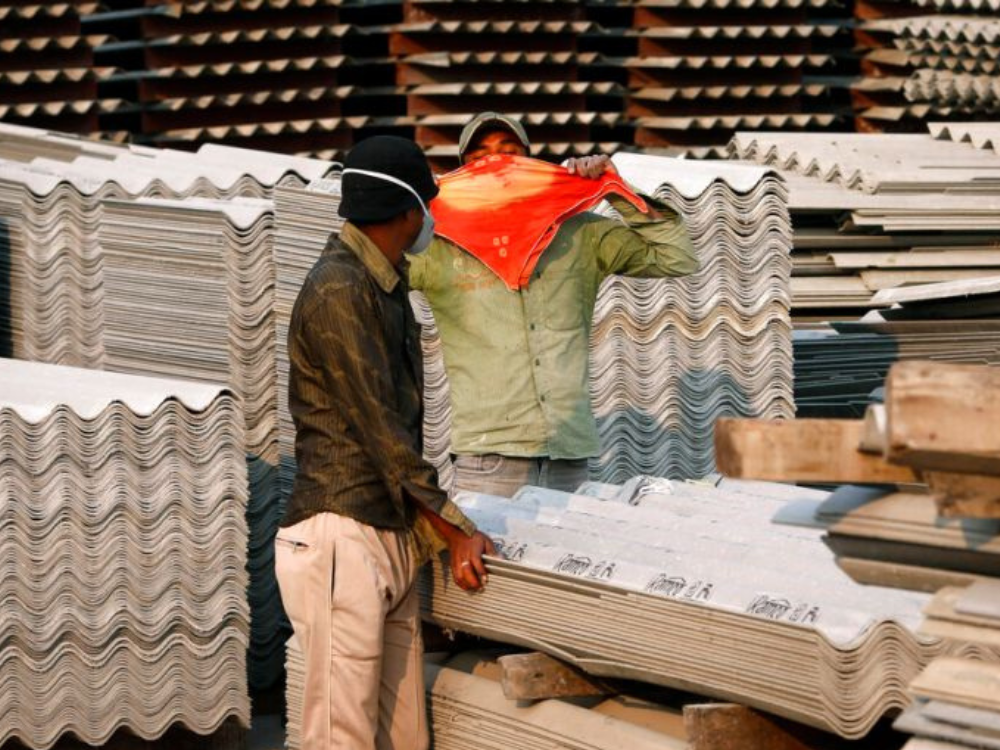India has recently overtaken Russia and Brazil as the largest producer of asbestos globally, and those who work in the country’s asbestos factories are paying the price. The country is poised to become the world’s asbestos-related diseases capital.
India banned asbestos mining in 1993. The Indian government ceased issuing licenses for asbestos mining, but the country holds the dubious honour of having the highest import volumes of asbestos than any other country. It accounts for 44% of total global imports, largely sourced from Russia and Brazil.
Gopal Krishna, an occupational health researcher, told The Guardian that “There’s almost no home or car in India that isn’t being built with asbestos as an ingredient. We are all exposed to it.”
The volume of exposure in the country is so significant that experts believe in the next few decades that more than 6 million people in the country could be diagnosed with an asbestos-related disease, with more than 600,000 cancer cases within that figure. The estimates are taken from research published by Mumbai’s Tata Institute of Social Sciences (TISS). “It’s a ticking timebomb,” says Abhijeet Vasant Jadhav, lead author of the research.
Currently, there is no plan to ban asbestos in India. According to India’s environment minister, Ashwini Choubey, the government is following the supreme court’s guidelines to mitigate adverse health effects.
The difficulty with this approach is that India, like many western countries, recognises asbestosis as an occupational hazard under the law, so workers who can prove workplace exposure are eligible for compensation. However, the latency period of asbestosis and other diseases linked to exposure can take up to 20 to 35 years to develop, making it difficult to prove a direct workplace connection.
India also lacks trained medical professionals experienced in identifying and treating workplace illnesses – in Indian medical schools, occupational health is not taught as a dedicated course.
“We don’t have doctors who know what to look for when it comes to occupational diseases,” says Venkiteswaran Muralidhar, professor of general surgery at Chettinad Medical College in Chennai. The professor believes that the public health infrastructure in the country will struggle to keep up with the predicted increase of cases, particularly in terms of palliative care options which are essential for incurable asbestos-related cancers.




